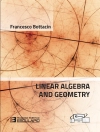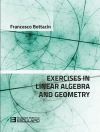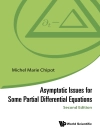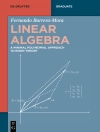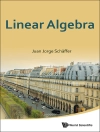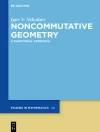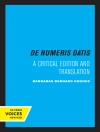This is the sixth volume of the Handbook of Geometry and Topology of Singularities, a series which aims to provide an accessible account of the state-of-the-art of the subject, its frontiers, and its interactions with other areas of research. Singularities are ubiquitous in mathematics and science in general, and singularity theory is a crucible where different types of mathematical problems converge, surprising connections are born and simple questions lead to ideas which resonate in other parts of the subject, and in other subjects.
This Volume VI goes together with Volume V and focuses on singular holomorphic foliations, which is a multidisciplinary field and a whole area of mathematics in itself. Singular foliations arise, for instance, by considering:
These important examples highlight the deep connections between foliations and singularity theory. This volume consists of nine chapters, authored by world experts, which provide in-depth and reader-friendly introductions to some of the foundational aspects of the theory. These introductions also give insights into important lines of further research. Volume VI ends with an Epilogue by one of the current world leaders in the theory of complex foliations, with plenty of open questions and ideas for further research.
The book is addressed to graduate students and newcomers to the theory, as well as to specialists who can use it as a guidebook.
Spis treści
1 Adolfo Guillot, On the singularities of complete holomorphic vector fields in dimension two.- 2 Julio Rebelo and Helena Reis, Singularities of holomorphic vector fields in dimensions ≥ 3: results and problems.- 3 Alcides Lins Neto, Codimension one holomorphic Foliations.- 4 Maurıcio Correa, Analytic varieties invariant by holomorphic foliations and Pfaff systems.- 5 Felipe Cano and Beatriz Molina-Samper, Local Invariant Hypersurfaces for Singular Foliations.- 6 Isao Nakai, From the perspective of nonsolvable dynamics on (C, 0): Basics and Applications.- 7 Javier Ribon, Description of the Zariski-closure of a group of formal diffeomorphisms.- 8 Frank Loray, The Riemann-Hilbert correspondence for rank 2 meromorphic connections on curves.- 9 Emmanuel Paul, Jean-Pierre Ramis, Dynamics of the fifth Painlevé foliation.- 10 Jean-Pierre Ramis, Epilogue: Stokes phenomena. Dynamics, Classification Problems and Avatars.
O autorze
Felipe Cano Torres (Ph D Universidad de Valladolid, Spain, 1983) is a researcher at Universidad de Valladolid. His research is on holomorphic foliations, particularly on reduction of singularities and applications to dynamical systems. Director of research of several international networks with European fundings. Co-founder and current subdirector of the CTRI, a center in Tordesillas, Spain, focusing on the relations between the University of Valladolid and Iberoamerica.
José Luis Cisneros-Molina (Ph D, University of Warwick 1999) is a researcher at the Mathematics Institute of the National Autonomous University of Mexico. His research interests are in Algebraic and Differential Topology, Differential Geometry and Singularity Theory, with a particular focus on generalizations of Milnor Fibrations for complex and real analytic maps.
Lê Dũng Tráng (Ph D, University of Paris 1969) is an Emeritus Professor at Aix-Marseille University. Previously he was Professor at the Universities of Paris VII (1975-1999) and Marseille, and was head of Mathematics at the ICTP at Trieste. One of the founders of modern Singularity Theory, he has made numerous contributions to morsification, the topology of complex singularities, polar varieties, and carousels, among other topics.
José Seade (DPhil, University of Oxford 1980) is a researcher at the Mathematics Institute of the National Autonomous University of Mexico. His research is in the theory of indices of vector fields and Chern classes for singular varieties, with applications to foliations, and Milnor’s fibration theorem for analytic maps. He was awarded the 2021 Solomon Lefschetz Medal by the Mathematical Council of the Americas. He is currently President of the Mexican Academy of Sciences.





